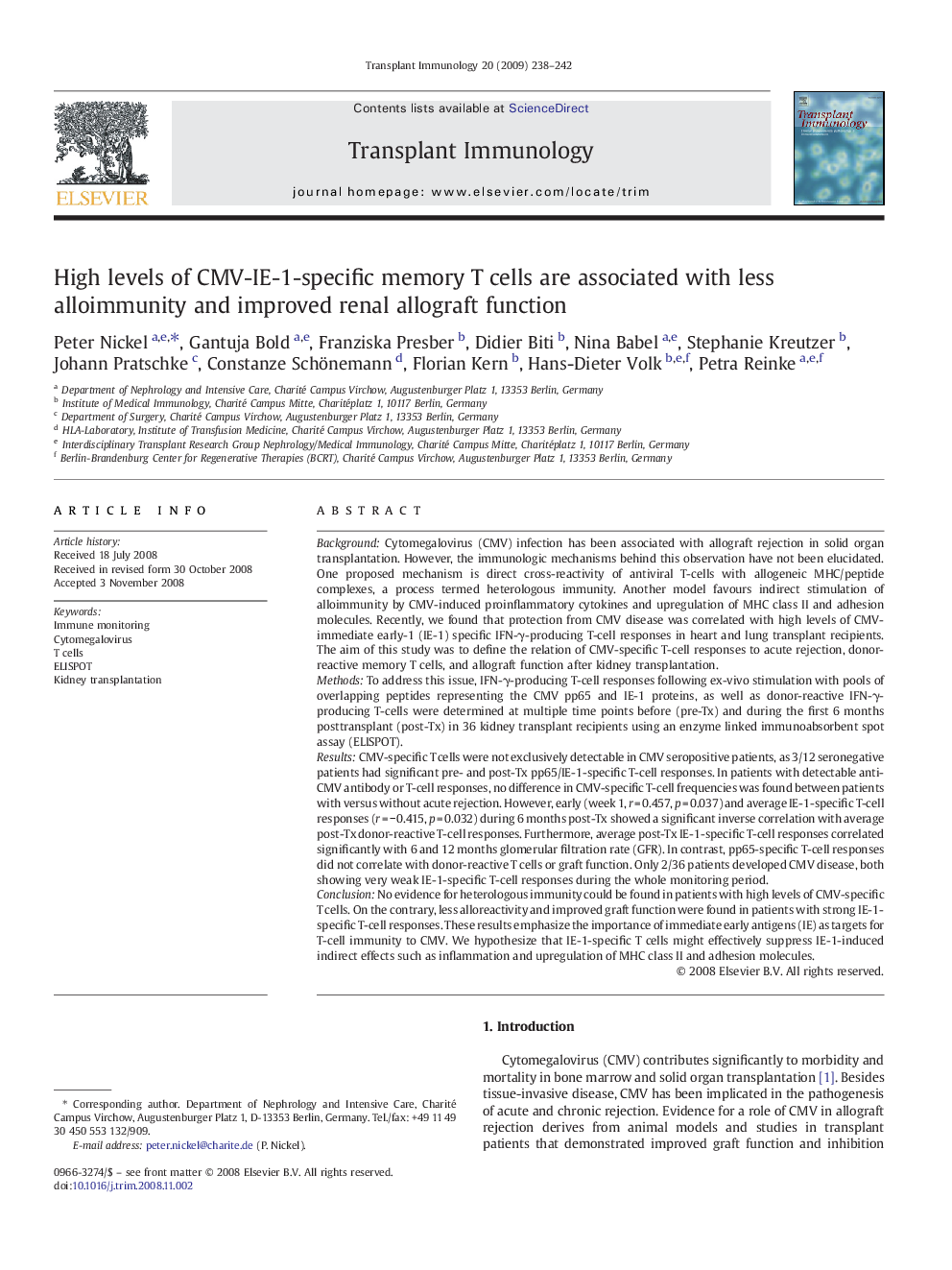| Article ID | Journal | Published Year | Pages | File Type |
|---|---|---|---|---|
| 3392504 | Transplant Immunology | 2009 | 5 Pages |
BackgroundCytomegalovirus (CMV) infection has been associated with allograft rejection in solid organ transplantation. However, the immunologic mechanisms behind this observation have not been elucidated. One proposed mechanism is direct cross-reactivity of antiviral T-cells with allogeneic MHC/peptide complexes, a process termed heterologous immunity. Another model favours indirect stimulation of alloimmunity by CMV-induced proinflammatory cytokines and upregulation of MHC class II and adhesion molecules. Recently, we found that protection from CMV disease was correlated with high levels of CMV-immediate early-1 (IE-1) specific IFN-γ-producing T-cell responses in heart and lung transplant recipients. The aim of this study was to define the relation of CMV-specific T-cell responses to acute rejection, donor-reactive memory T cells, and allograft function after kidney transplantation.MethodsTo address this issue, IFN-γ-producing T-cell responses following ex-vivo stimulation with pools of overlapping peptides representing the CMV pp65 and IE-1 proteins, as well as donor-reactive IFN-γ-producing T-cells were determined at multiple time points before (pre-Tx) and during the first 6 months posttransplant (post-Tx) in 36 kidney transplant recipients using an enzyme linked immunoabsorbent spot assay (ELISPOT).ResultsCMV-specific T cells were not exclusively detectable in CMV seropositive patients, as 3/12 seronegative patients had significant pre- and post-Tx pp65/IE-1-specific T-cell responses. In patients with detectable anti-CMV antibody or T-cell responses, no difference in CMV-specific T-cell frequencies was found between patients with versus without acute rejection. However, early (week 1, r = 0.457, p = 0.037) and average IE-1-specific T-cell responses (r = − 0.415, p = 0.032) during 6 months post-Tx showed a significant inverse correlation with average post-Tx donor-reactive T-cell responses. Furthermore, average post-Tx IE-1-specific T-cell responses correlated significantly with 6 and 12 months glomerular filtration rate (GFR). In contrast, pp65-specific T-cell responses did not correlate with donor-reactive T cells or graft function. Only 2/36 patients developed CMV disease, both showing very weak IE-1-specific T-cell responses during the whole monitoring period.ConclusionNo evidence for heterologous immunity could be found in patients with high levels of CMV-specific T cells. On the contrary, less alloreactivity and improved graft function were found in patients with strong IE-1-specific T-cell responses. These results emphasize the importance of immediate early antigens (IE) as targets for T-cell immunity to CMV. We hypothesize that IE-1-specific T cells might effectively suppress IE-1-induced indirect effects such as inflammation and upregulation of MHC class II and adhesion molecules.
